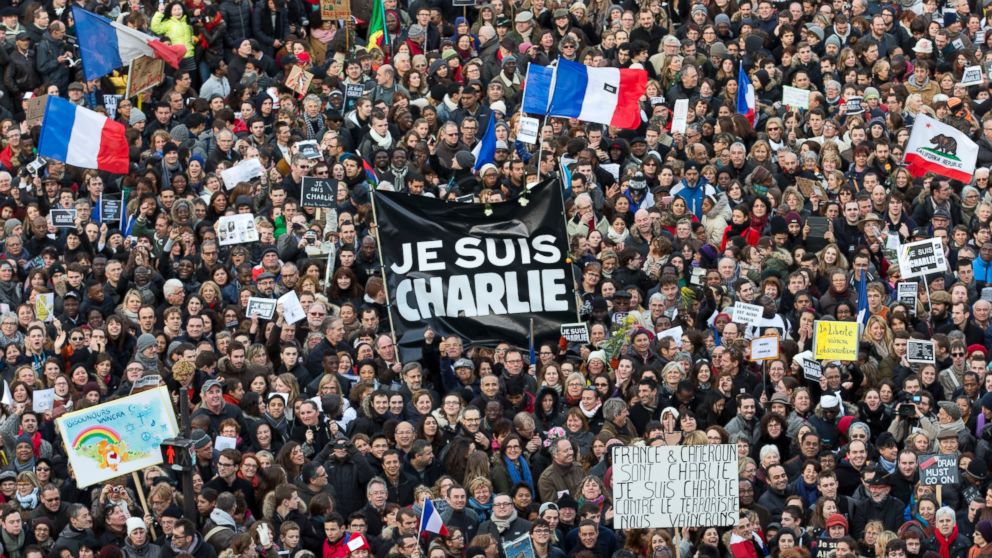
 The terrorist attacks in Paris have fixated the world’s attention on the contrast between competing worldviews and what constitutes acceptable behavior in modern society. What are the principles by which society should be organized and run? Who gets to set those rules, and to what standards should others who do not believe in them be held?
The terrorist attacks in Paris have fixated the world’s attention on the contrast between competing worldviews and what constitutes acceptable behavior in modern society. What are the principles by which society should be organized and run? Who gets to set those rules, and to what standards should others who do not believe in them be held?
While at their core these are philosophical questions, the way we answer those questions can have profound economic consequences. They are especially important to understand in the context of Europe. For today’s Outside the Box reading, I think we should look at two essays by old friends to OTB, Charles Gave and George Friedman.
Charles writes as a patrician French patriot and examines the question “[Do] France and its neighbors have a part of their population that rejects the rules on which the nation is based and wishes to build a nation under a different set of rules?”
He offers a very nuanced and thoughtful analysis of the difficulty of answering that question by means of simplistic reactions. And he comes to the uncomfortable conclusion that
As far as France and most other Western nations are concerned, it is obvious that these questions will now more than ever (in spite of mainstream politicians’ best efforts to keep them out) enter the political stream and discourse. And instead of calming tensions in an era of great economic discomfort, this will likely amplify them.
George sees the problem in terms of geopolitical analysis and through the lens of history (emphasis mine):
The Mediterranean borderland was a place of conflict well before Christianity and Islam existed. It will remain a place of conflict even if both lose their vigorous love of their own beliefs. It is an illusion to believe that conflicts rooted in geography can be abolished. It is also a mistake to be so philosophical as to disengage from the human fear of being killed at your desk for your ideas. We are entering a place that has no solutions. Such a place does have decisions, and all of the choices will be bad. What has to be done will be done, and those who refused to make choices will see themselves as more moral than those who did. There is a war, and like all wars, this one is very different from the last in the way it is prosecuted. But it is war nonetheless, and denying that is denying the obvious.”
George has written a book called Flashpoints: The Emerging Crisis in Europe, which will not be available until later in January, although he graciously sent me a review copy. I’ll get started with that one but will also go ahead and buy it in a couple weeks, so I can read it on my iPad Kindle app. I find reading books on my iPad far more efficient and easy than toting around three or four books in a briefcase. I can highlight and make notes and have them available online anywhere in the world without having to go back and search through a book that I read years ago. I know that many people relish the feel of a physical book, and I admit to that pleasure; but the pain of not being able to find a specific quote or note, or worse, not being able to find the book at all because you lent it to somebody and it’s not back on your bookshelf, is far more of a driver to make me go almost totally online.
That said, when I found out that my flights to Cincinnati and back would not have on-board Wi-Fi, I did jump into George’s book. I think it’s his best work to date. It recalls to mind so many conversations we have had over the years about the tensions in Europe, and it’s giving me a deeper understanding of a region of the world that I am really quite fond of. I suspect we will revisit George’s work in future letters. It is especially relevant to the research I’m doing for my own current book-writing project on the future of the global economy.
Cincinnati is as the Weather Channel forecasted, cold and grey with snow flurries, as I look out my hotel window. That gloom aside, I spent several hours this morning visiting with friends who run a private biotechnology startup across the river. That was a decidedly ungloomy get together, as the optimism that a cure for cancer is potentially in the offing in the not-too-distant future was evident to us all, even as they explained the (to me very frustrating) process of securing regulatory approval. Hopefully that process will come to a reasonable conclusion sooner rather than later, given that over 1,500 people a day die from cancer in the US alone (many more actually contract cancer and undergo treatment and live). The savings in human lives brought about by a cure would be incalculable, but the savings in dollars to our healthcare system and the elimination of other economic losses caused by cancer would be in the hundreds of billions. And that is just in the US.
And on that hopeful note, let’s turn to Charles and George, where the news is not as optimistic. Have a great week!
Your pondering Europe analyst,
John Mauldin, Editor
Outside the Boxsubscribers@mauldineconomics.com












